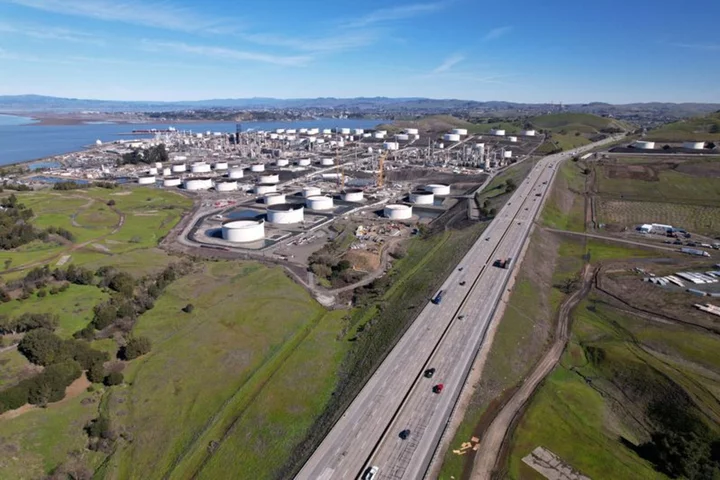By Mohi Narayan, Laura Sanicola and Ahmad Ghaddar
NEW DELHI/WASHINGTON/LONDON Global refiners are raking in hefty gains, fuelled by a rebound from second-quarter lows in margins on making oil products such as diesel, jet fuel and gasoline, a trend that oil companies and experts expect will continue for the rest of 2023.
Recovering profit margins may prompt complex refiners to maximise yields of transport fuels, causing excess naphtha output as a byproduct in a tepid petrochemical market and further depressing feedstock margins.
Refiners are optimistic about the bull run due to projected sustained strong demand growth and low inventory levels.
"We have lots of pockets of really strong distillate demand in Latin America, up 9%, Asia up 4% and diesel cracks continue to remain strong," Brian M. Mandell, executive vice president for marketing & commercial at Phillips 66, said on last week's earnings call.
Mandell expects margins to continue to perform well throughout the year heading into higher-demand crop planting season and into winter in the United States.
Eugene Lindell, head of refined products at consultancy FGE, said refiners are incentivised to ramp up runs regardless of complexity.
"The healthy margins reflect the bull market for diesel combined with still strong gasoline cracks even if gasoline did weaken sharply on week. Chronic weakness in global naphtha cracks is being offset, at least for now, by bullish HSFO (high sulfur fuel oil) cracks, especially in Asia and Europe," he said in a note this week.
MARGINS SOAR
Profit on processing a barrel of crude at a typical European or U.S. refinery has jumped by about 33% year to date, while refining profit margins in Asia are up by around 9%, Refinitiv Eikon data showed.
A Singapore-based trader said middle distillate cracks, or margins, have traded stronger recently than gasoline, which had hit four-month highs on robust summer demand.
Meanwhile, Asian 380-cst HSFO margins posted gains of more than 15% last week, buoyed by Saudi Arabia's announcement of further crude supply cuts.
"Middle distillates are expected to continue outplaying gasoline and so will remain the margin driver (in the second half), even after cracks shed over $10 per barrel from current levels in Asia," FGE's Lindell told Reuters.
However, Lindell said fourth-quarter margins could be substantially weaker than present levels though they will remain healthier than 2020 and 2021, as naphtha margins are not likely to improve over the next six months at least, while gasoline is seen weakening once refiners shift towards making cheaper winter grades of the fuel.
OUTAGES, INVENTORIES
For now, unplanned refinery outages in Asia and elsewhere are also supporting margins.
According to FGE estimates, about 250,000 barrels per day of capacity was offline in Asia in the last two months, including in Malaysia at Petronas' PIC refinery, at Hyundai Oilbank's Daesan refinery in South Korea and at Japan's ENEOS.
Next month, planned maintenance at India's Reliance Industries, BPCL and Indian Oil will bring a combined 430,000 bpd of capacity offline, FGE estimated.
U.S. oil companies said during recent second quarter earnings presentations that strong global demand for fuels and low product inventories are driving robust profits.
Gasoline inventories are 7% below five-year averages while distillate inventories are 19% below averages, Mandell of Phillips 66 said.
FGE analysts expect middle distillate stocks to start drawing down as OPEC+ cuts supplies of medium sour crudes, which are ideal for diesel.
Meanwhile, global refining capacity additions lagged expectations, Marathon Petroleum and Phillips 66 executives said.
"Despite crack spreads incentivising high refining utilisation, product inventory levels remain low," Michael J. Hennigan, president, CEO & director of Marathon, said on last week's earnings call.
"Global capacity additions continue to progress slower than anticipated, and we believe that global demand growth will remain strong," Hennigan added.
(Reporting by Mohi Narayan in New Delhi, Laura Sanicola in Washington and Ahmad Ghaddar in London; Additional reporting by Jeslyn Lerh in Singapore; Editing by Tony Munroe and Muralikumar Anantharaman)

